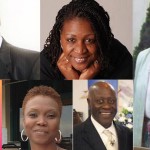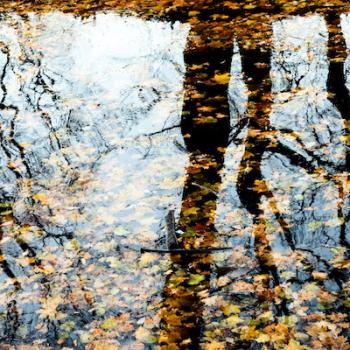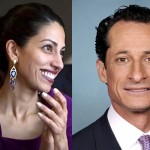I wanted to wait until I heard Rachel Dolezal speak on her own behalf before I offered any written commentary on the issue. I wanted to hear from her own mouth why she self-identifies as a black woman. So, I listened intently to every word Rachel said in her Today Show interview — waiting, anticipating, and looking for her to say what every black person birthed from the struggle of the black experience in America has declared: “I love being black!”
Rachel Dolezal never stated or even alluded to loving “her” blackness. She didn’t say that black was beautiful, desirable or powerful. She never gave any notion of being proud to be black. Instead, Rachel did all she could to show the “genuineness” of her blackness based upon how long she saw herself as black— referencing drawing herself with brown colored crayons when she was a child. But in the midst of all she said and used to explain her actions, she never once stated that she loved being black.
I suspect that Rachel Dolezal could not say she loved being black because it was not in her to say. Why? Because she doesn’t have the only true, yet unfortunate, privilege that black people have in America: the unfortunate privilege of emergence from oppression. Almost akin to the Phoenix that perpetually rises from the ashes even more beautiful than before, black Americans have emerged from hundreds of years of living in a white-centered society where the only images of beauty and culture were Caucasian.
This emergence didn’t only include our perseverance through slavery, oppression, Jim Crow, and institutionalized racism. It includes the continuous shedding of the same mental programming that made us draw ourselves with the white and peach colored crayons instead of the brown or black ones. Unlike Rachel, we didn’t draw ourselves with the wrong colors because we culturally wanted to identify as white. We drew ourselves in that manner because that’s the only images we saw in the white dominated world around us and because we were, at times, silently ashamed that the reflection our mirrors revealed to us did not match anything the world told us was beautiful.
The love we have for our blackness is an intoxicating elixir that is extracted both from the grapes of our oppression and the shedding of the mental bondage that, for too many years, instructed us that our skin color was not desirable in a world of white-centered beauty. And in this emotional and mental press, we rediscovered how beautiful our skin tones and hair texture were and even how stoically beautiful our struggle has been throughout our American experience.
Sadly, you cannot have this love if you haven’t had to struggle with— and then overcome —people labeling your features as ugly, nappy, and nasty only to later have those features appropriated by the same people. As a man, I’ve had to confront myself about my wife’s desire to let her hair be natural versus my demands that she keep it processed —hanging and flowing. I had to look myself in the proverbial mirror and recognize the attachments I had to white definitions of beauty. And from the recesses of my memory, I got a little-bit of help from Malcolm:
Who taught you to hate the color of your skin? Who taught you to hate the texture of your hair? Who taught you to hate the shape of your nose and the shape of your lips? Who taught you to hate yourself from the top of your head to the soles of your feet?
Indeed! And then finally, one day after shedding my attachment to the standards of beauty imposed on my pysche by whiteness, I was able to see my wife as she really was and, what’s more, I saw how much more beautiful she was in her natural state than she had ever been before. It was like a blind man seeing his wife for the first time in his life. Yet, my eyes always functioned properly. My brain, however, did not. But now, with my new set of eyes, I saw how I could actively shape my children’s world to never suffer from the same identity-crises through which too many African Americans have silently suffered.
Unless you’ve had to struggle with this, I don’t think you can honestly love being black. This is why Rachel Dolezar didn’t say she loved “her” blackness. Still, I was hoping that she would say it. I was waiting for her to say it. How I would have loved for her to say:
“I identify as black because I love blackness. Every American should love blackness. Black is beautiful. Black if powerful. I love their story. I love their challenges. I love their perseverance in adversity. I love their complexions that are so diverse that it could even include me. I love their soul. I love being black so much that I decided to become black.”
I was hoping she could testify to the world that blackness is something so desirebale that she transformed every facet of her life simply for the chance to be a part of it. And I am aware that this hope is based on some innate need for validation by a system that, for so long, denigrated us. (Do you see now how difficult it is to break free from the vestiges of white-supremacy?)
Notwithstanding this, I still wanted to hear her say it. However, she didn’t because she couldn’t. And because this love-of-self was forged out of necessity by black people in America in the face of physical and mental oppression, Rachel Dolezal cannot not love being black; she merely loves the idea of being black.
















